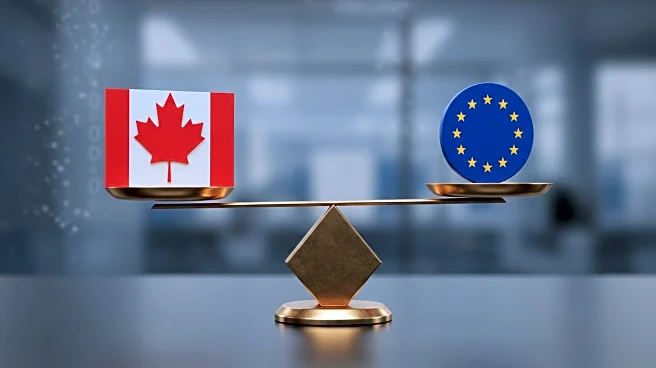What's Happening?
The U.S. Department of Justice is intensifying its enforcement against alleged tariff evaders, focusing on Canadian and European companies. The DOJ's Fraud Section has been tasked with leading these efforts, following President Trump's accusations of economic misconduct by U.S. allies. The initiative elevates trade and customs fraud to a high priority, redirecting resources from other areas to prosecute tariff evasion. The enforcement strategy includes increased funding for Customs and Border Protection and a whistleblower rewards program, aiming to build a comprehensive enforcement apparatus.
Why It's Important?
This enforcement action represents a significant shift in U.S. trade policy, potentially impacting international trade relations and economic dynamics. Canadian and European exporters face increased scrutiny, which could lead to legal challenges and affect trade volumes. The DOJ's focus on these regions reflects political grievances over trade deficits and aims to uphold U.S. economic interests. The initiative may deter tariff evasion, promoting fair trade practices, but could also strain diplomatic relations with affected countries. Businesses must navigate this new landscape, balancing compliance with strategic trade objectives.
What's Next?
Companies involved in U.S. trade should prepare for heightened enforcement and potential legal proceedings. The DOJ's Fraud Section offers incentives for voluntary disclosure, but businesses must carefully assess risks and benefits. The enforcement wave may lead to increased cooperation from executives, influencing corporate strategies and international trade policies. As the DOJ ramps up its efforts, Canadian and European firms will likely face more frequent investigations, necessitating robust compliance measures. The broader impact on U.S.-foreign trade relations will unfold as enforcement actions progress.












